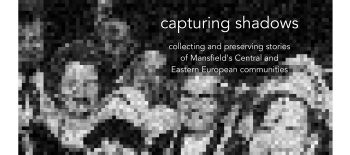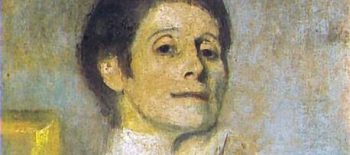If you’ve ever seen the films Solaris, The Congress or Apocalypse Now, you’ve most certainly been exposed to the fruits of Polish literature. Yes, Joseph Conrad – author of Heart of Darkness, the novella that inspired Apocalypse Now – wrote in English, but he didn’t learn the language until his twenties and wrote in a distinctly un-English style. On the other hand, sci-fi writer Stanisław Lem – author of Solaris and The Futurological Congress – lived in Poland for the majority of his life and wrote solely in his mother tongue.
Both authors works are available widely in English, and you’re likely familiar with their cultural influence. Polish writing doesn’t stop there though. The country has given birth to five Nobel Prize winners in literature (most recently, the poet Wisława Szymborska). If your finger is on the literary pulse, you’ll undoubtedly know that Olga Tokarczuk recently won the 2018 Man Booker International Prize for her novel Flights (translated by Jennifer Croft), the first Polish author to do so. Naturally, this has led to a slew of publishing houses rushing to translate her formidable back-catalogue.
In the spirit of celebrating Polish literature, here’s four modern novels you should have a crack at reading before the summer’s over:
Lovetown (Michał Witkowski)
“Thank God it’s only queens and jolly old ladies here. The radio warbles Maryla and Budka. We have our Mars cigarettes, our Eris sunblock, our memories of caravan holidays, when you’d spend a whole night on the train just getting there, honey, and a crowded train at that, standing in the corridor the whole journey, but happy just to be going to the beach.”
Lovetown is unlike any novel you’ve read. The book is split into two parts: the first, set in the Wrocław apartment of two older Polish drag queens as they reminisce about their gay escapades in the communist-era; the second, set on a nudist beach in the Western Baltic resort Lubiewo. The book is part-fiction, part-reportage, as Witkowski writes himself into the narrative, listening to countless stories from veteran queens in a contemporary Polish queer retelling of The Decameron. This is a text with broad ambitions, one that attempts to recreate the vernacular and banal remarks of its participants, as a means of situating the reader most directly in their experiences. It’s a wild book, full of wildly entertaining characters with wildly radical observations about the fortunes of queer men in a post-communist Poland.
The 8th Day of the Week (Marek Hłasko)
“‘…To be or not to be. People are exhausted, they are dropping to the ground, what can raise them up again? To be or not to be. Cynicism is coming – and fast – to be the sole morality. To be or not to be. Can anything valuable come out of a world that has to use blackmail to keep from collapsing? To be or not to be. Oh we’ve created artificial moons, but man with his true feelings and aspirations must find a safe refuge. To be or … Waiter, half a litre, please.’”
The 8th Day of the Week was actually published in 1956, making it not quite as modern as the other titles listed here. It does, however, provide an insightful contrast in its depiction of post-war, pre-thaw gloom on the sullen streets of Warsaw. Simply put, the novel tells the story of two lovers attempting to find a private place to consummate their love. Across the course of a number of conversations, it ends up expertly spinning the web of disenchantment that fell over young people living in the shadow of Stalinism. The book’s author, Hłasko, enjoyed domestic acclaim, followed shortly by censorship and international renown, but befell as grim a fate as his despondent narrative suggests: after a drunken scuffle with his close friend Krzysztof Komeda led to the jazz pianist’s death, Hłasko never quite recovered and died after taking a cocktail of drugs in 1969.
Madame (Antoni Libera)
“I looked up and froze. Yes it was she – Madame. My head spun. It’s not possible, I thought; such things don’t happen in this world. But before I could embark on a discussion with the spirit of Thomas Mann, whose voice had once again sounded somewhere within me, there she was, standing before me.”
Although Madame was first published in English in 2001, the novel is set in the Warsaw of the late 1960s, making it an ideal counterpoint to The 8th Day of the Week. Gone is the gloom and – in the narrator’s words – the “degeneration and crime and collective madness” of Stalinism. In its place is a playfully curious schoolboy with a burgeoning Francophilia and thinly-veiled passion for his French teacher. Libera sets up his novel as a Bildungsroman (at times literally invoking the spirit of Thomas Mann), yet with a twist of parody, ultimately ends up subverting the genre. This is the beauty of the book. You never really know quite where it’s taking you, but its lively narrator fills it with enough wit, nostalgia and literary homage to reawaken your own dormant adolescent lust for learning.
My First Suicide (Jerzy Pilch)
“In our parts, houses in which the drapes were closed during the day were the houses of the dead. And the houses in which the drapes were not closed at night were the houses of demons. At the break of dawn, in winter at six at the latest, five at the latest in summer, Grandma Pech would open the drapes, lest anyone should glance at our windows and get the idea that someone had died in the Pech household; or, what is worse, that the Pechs were still sleeping.”
As the narrator explains to a most beautiful woman early on in the book, My First Suicide is “a collection of short stories of a different sort.” The narrator’s pretentiousness is sharply rebuked by his sparring partner, yet there’s a truth in there. My First Suicide undoubtedly consists of short stories, but whether they’re confected musings or autofiction or real-life revelations remains unclear. The narrator hops from the deep Lutheran south of his Wisła childhood, to his later, established years in Warsaw, via an early upending to Kraków – drinking in the distinctive cultures and ticks of a vast country. Pilch is a master at dropping linguistic threads and picking them up later in the most satisfying of ways. He’s also a master at sharing his humanity for what it is (distracted, regretful and preoccupied with sex), thus bringing the reader closer and closer, leaving you wanting more of his sharp, humorous, different short stories.



